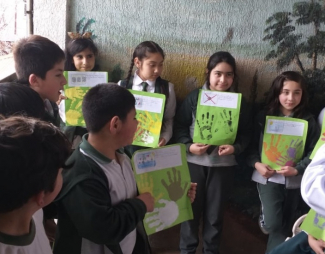FILTER
Displaying 1 - 10 of 105 publications
Abstract This paper investigates the spillover effect of an environmental campaign on the support for policies within and across other domains. The environmental campaign focused on single-use…
| EfD Discussion Paper | VietnamAbstract Environmentally friendly alternatives (EFA) are touted as a key component of a transition towards lowering the impact of human activity on the environment. Still, the environmental costs of…
| Peer Reviewed |A B S T R A C T We evaluate the direct and indirect effects of an environmental educational program with value-laded content on children’s and parents’ knowledge, attitudes and practices regarding the…
| Peer Reviewed | ChileWe evaluate the direct and indirect effects of an environmental educational program with value-laded content on children's and parents' knowledge, attitudes and practices regarding the consumption and…
| Peer Reviewed | ChileAbstract This paper evaluates whether the devolution reform of forestland to household management improves allocative efficiency and household welfare through participation in forestland rental…
| Peer Reviewed | ChinaWe study distributional preferences in adolescent peer networks. Using incentivized choices between allocations for themselves and a passive agent, children are classified into efficiency-loving…
| Peer Reviewed | South Africa, Sweden, Global HubAbstract We study distributional preferences in adolescent peer networks. Using incentivized choices between allocations for themselves and a passive agent, children are classified into efficiency…
| Peer Reviewed | Sweden, Global HubAbstract Environmentally friendly alternatives are touted as a key component of a transition towards lowering the impact of human activity on the environment. The environmental costs of these…
| EfD Discussion Paper | Central AmericaThis study uses a large field experiment linked to actual behavior to evaluate the effects of an information campaign with and without celebrity endorsement on the use of single-use plastics. We find…
| Peer Reviewed | VietnamAbstract We study distributional preferences in adolescent peer networks. Using incentivized choices between allocations for themselves and a passive agent, children are classified into efficiency…
| EfD Discussion Paper | Sweden, Global Hub

